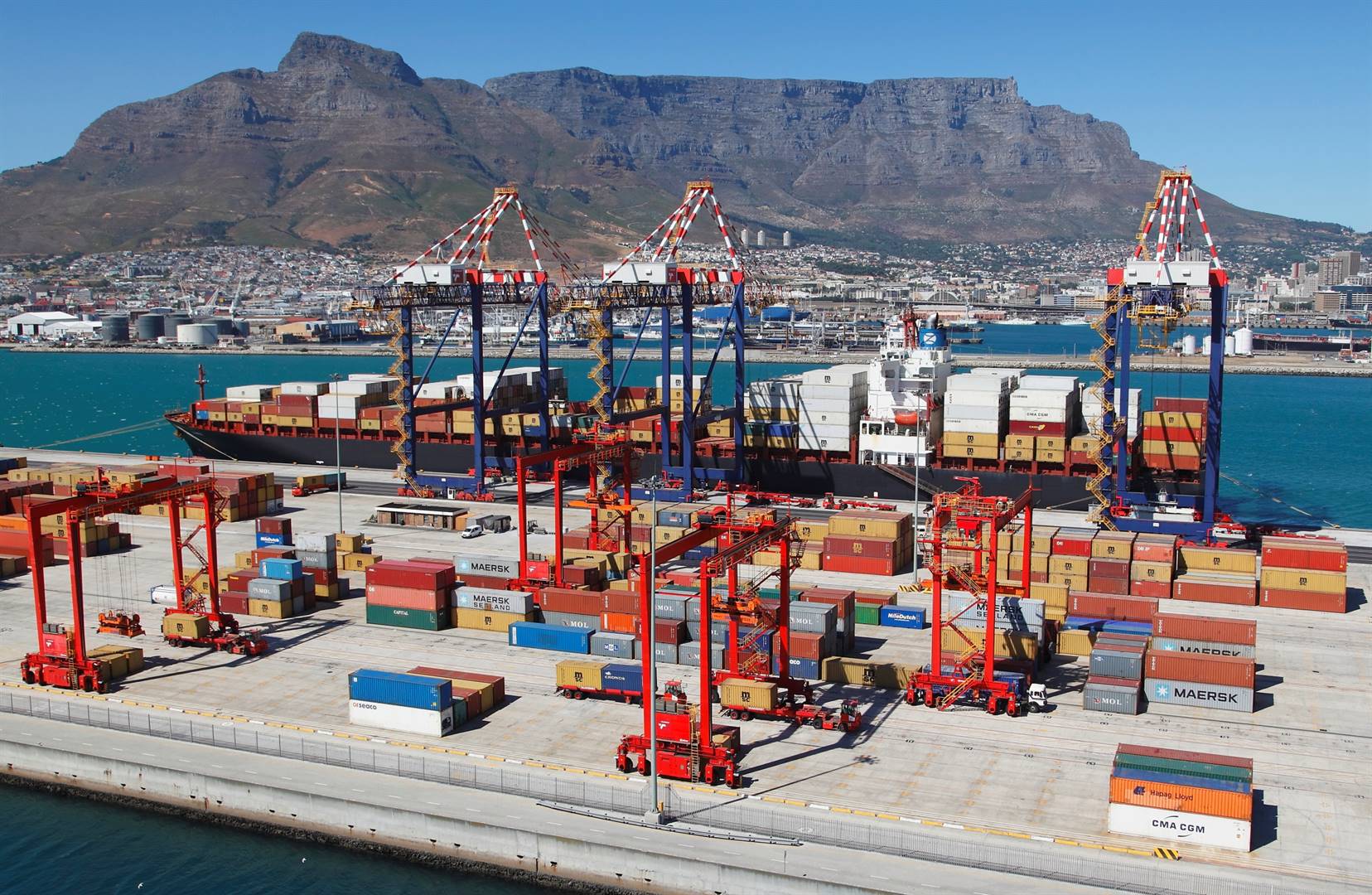
There’s been a slight improvement in Cape Town and Port Elizabeth.
Amid a growing crisis, Transnet’s failure to fulfil its duties is costing South Africa a staggering R96 million each day, a dire situation revealed by the SA Association of Freight Forwarders (SAAFF).
The delays plaguing the country’s ports are causing an economic meltdown, with direct costs to the freight industry amounting to R98 million a day, indirect costs soaring up to R26 million and goods worth R7 billion hindered from moving every day.
SAAFF CEO Juanita Maree labelled the situation a crisis, explaining that the international shipping industry, akin to a meticulously timed bus schedule, now faced insurmountable challenges.
Commitments to specific ports at designated times are in disarray, leading shipping lines to implement port congestion surcharges in a desperate attempt to recoup costs.
READ: SA faces risk of a credit downgrade as public finances deteriorate
Putting the issue into stark perspective, Maree highlighted that a whopping 96 vessels were anchored outside the ports, inflicting substantial economic repercussions.
Although there’s been a slight improvement in Cape Town and Port Elizabeth, Durban terminals remain in disarray, with an average waiting time of nine days.
The additional direct logistics cost has skyrocketed to a minimum of R48.5 million per day. With the introduction of port congestion surcharges for containers, this cost could surge to an alarming R98 million per day.
The indirect logistics cost, including the opportunity cost of halted goods movement and time delays, far surpasses the direct logistics cost, ranging from R26 million to a potential R165 million per day.
Maree underscored the impact on cargo owners, particularly small, medium, and micro enterprises (SMMEs). As additional lead times disrupt supply chains, SMMEs, typically operating on a week’s buffer stock, face imminent losses. The high inventory costs and a lack of viable alternatives, such as airfreight, further compound the predicament for these businesses.
What is the current performance?
The throughput shows the following figures across our commercial ports in the last week:
- Cape Town Container Terminal handled ~1 582 (+5%, w/w) containers a day
- Durban Container Terminal Pier 1 handled ~1 404 (-2%, w/w) containers a day
- Durban Container Terminal Pier 2 handled ~2 889 (-4%, w/w) containers a day
Source: SAAFF
Meanwhile, Transnet put some of the blame on inclement weather conditions and equipment availability as primary causes for the port backlogs. Board chairperson Andile Sangqu acknowledged the complexity of the port congestion problem, attributing it to years of underinvestment in equipment and maintenance.
Transnet outlined urgent interventions, including plans to increase container handling tempo at Piers 1 and 2, and the acquisition of new cranes.
However, Sangqu cautioned that addressing the issue would take time, with lead times for equipment procurement ranging from 12 to 18 months. The company aims to clear the backlog at Pier 1 within seven weeks and at Pier 2 within 15 weeks through a series of short-term interventions.
Acting CEO Michelle Phillips assured stakeholders that the company was working tirelessly to maximise berth performance, but the proposed recovery plan extended into the mid-2020s.
The urgency of the situation prompted an emergency meeting to address road congestion at the Port of Richard’s Bay, underscoring the severity of the crisis.
Transnet’s failure to address port inefficiencies has triggered a full-blown economic catastrophe, impacting both large shipping corporations and vulnerable SMMEs.
READ: SIU to freeze former Transnet execs’ R8m pensions for allegedly inflating straw prices to R29 each
The proposed interventions, while promising, raise concerns about the prolonged timeline for execution and the looming threat to South Africa’s economic stability. Immediate and decisive action is imperative to prevent further haemorrhaging of the country’s financial resources.
“Transnet has continually emphasised the importance of private-sector partnerships to modernise infrastructure and enhance operational efficiency, with ongoing collaboration to improve service delivery,” Maree said, adding:
These proposals are at the heart of our potential recovery, as the current operating model is archaic and needs to be revolutionised.
“Ultimately, we need a concerted effort from all parties. Not only Transnet, not only the extended government working in this industry, and not only the private sector represented by the cargo owners, freight agents, shipping lines and other related parties. But everyone. Together. With a sense of urgency that the situation desperately needs.”






Recent Comments